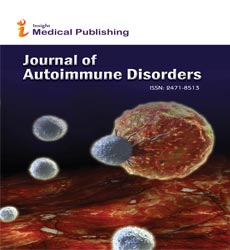Abstract
Autoimmune Mechanisms of Psoriasis: Pathogenic Role of the IL-23/IL-17 Axis
Psoriasis is a chronic, recurrent, immuno-inflammatory disease of the skin and joints associated with significant morbidity and mortality. Psoriasis affects approximately 2-4% of the Caucasian population worldwide. The precise immuno-inflammatory mechanisms leading to skin psoriasis are still to be fully defined. There is emerging evidence supporting the existence of a relationship between changes in cutaneous microbiota and development of psoriasis. Under certain pathologic conditions associated with dysbiosis of the skin microbiome, pathogenic microbes triggering aberrant immuno-inflammatory responses may spark the onset and relapses of psoriasis. Strong association of certain human leukocyte antigens (HLAs) along with the pathogenic role of IL-17 suggests the involvement of autoimmune mechanisms in psoriasis. Multiple clinical trials targeting the IL-17/IL-23 axis in psoriasis are underway. Here, we review the emerging findings suggesting the autoimmune nature of psoriasis and examine new therapeutic approaches for treatment of this chronic immuno-inflammatory disease.
Author(s):
Melanie Wolf and Alex Shnyra
Abstract | Full-Text | PDF
Share this

Google scholar citation report
Citations : 155
Journal of Autoimmune Disorders received 155 citations as per google scholar report
Abstracted/Indexed in
- Google Scholar
- Open J Gate
- China National Knowledge Infrastructure (CNKI)
- Directory of Research Journal Indexing (DRJI)
- WorldCat
- Geneva Foundation for Medical Education and Research
- Secret Search Engine Labs
Open Access Journals
- Aquaculture & Veterinary Science
- Chemistry & Chemical Sciences
- Clinical Sciences
- Engineering
- General Science
- Genetics & Molecular Biology
- Health Care & Nursing
- Immunology & Microbiology
- Materials Science
- Mathematics & Physics
- Medical Sciences
- Neurology & Psychiatry
- Oncology & Cancer Science
- Pharmaceutical Sciences


